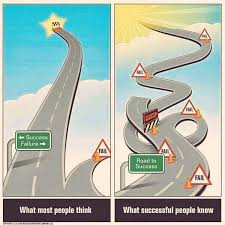Where are my thoughts?
When was the last time you thought about eternity? Better yet, do you even believe in eternity? If you do not believe in “life after death”, you may be extremely depressed with the thought of someday leaving behind your prize possessions (your favorite stuff) and relationships (your favorite people).
Even for those of us who do believe in eternity, there is a reluctance to place much time or attention on this topic unless we are forced to do so, usually as a result of losing a family member or friend.
That’s why we are going to spend time in our next few WordBytes exploring the wonders of eternity; how we can live victoriously today with eternity in mind?
Why aren’t we talking more?
Why don’t we talk more about eternity—the place where we will live out the remainder of our existence? I can understand nonbeliever’s aversion to this topic; for them, eternity doesn’t exist. Therefore, there is nothing to look forward to.
However, for we believers there should be more to draw our attention to eternity than helpless resolve or fear. Eternity should be the place we joyfully anticipate.
Why should we be joyful?
To whet your appetite for eternity, I’ll share a “short list” of why eternity is a place of joy.
- Eternity is a place which Jesus Christ has prepared for us to be together. “I go to prepare a place for you…that where I am, there you may be also.” (John 14:3) We will be in the presence of God, our Creator and Christ, our Savior. In His presence is fullness of joy and peace forevermore. (Ps. 16:11)
- There will be no sickness and no more tears (Rev.21:4). With The Fall (Gen. 3) sin was introduced into God’s perfect world. On its heels followed pain, sickness, and death. As much as man tries, he can never reverse these affects. But in Christ—in His death, burial, and resurrection from the dead, sin lost its power. Christ replaced it with eternal life which will be fully realized in eternity. (Rom. 5:21)
And the “short list” continues…
- We will have glorified bodies to house our eternal spirit. Ever wonder why you don’t mentally feel your physical age? It’s because our soul doesn’t age. If our bodies didn’t “breakdown” with disease and age, we would keep right on “ticking.” We will have bodies built for eternity. (1 Cor. 15:54)
- Eternity is where we will receive our reward for service done on earth. While we do not work for our salvation (Eph. 2:8), God has promised to reward us for our contribution to kingdom building and acting as His ambassadors here on earth. (Rev. 11:18; 22:12)
So, I ask you again, why don’t we have a loving eye on eternity? Why isn’t there greater excitement at the possibility of life eternal with the Lord? What stands in the way of our desire for eternity? Next week, we’ll continue with our study on eternity.










